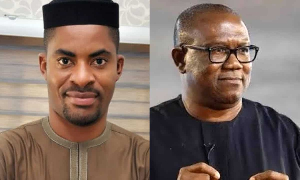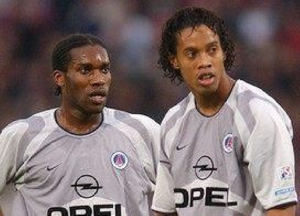Although the outgoing administration’s roads construction and rails’ provisions have been criticised as being skewed in favour of the north, President Muhammadu Buhari, nevertheless, is leaving behind above average performance on the infrastructure flank, writes Group Business Editor, SIMEON EBULU.
The place to look when in search of Buhari’s landmark achievements on the infrastructure segment is the Federal Ministry of works and Housing. The search is made easier when you listen to Babatunde Raji Fashola, who spares no efforts in telling you that this administration has done well, in fact very well, and in eight years has surpassed that of its predecessor, the Peoples Democratic Party in its 16 years sojourn in the saddle.
You may not agree with his submission, but Fashola would leave you in no doubt that his narration is correct because he would back it up with facts and figures.
And if you push him, may be out of mischief, or to counter his argument, with a view to disparaging him on his submission, you will see the red of his eyes. He never ends such tauntings with laughter, even if they were meant to lighten the tone of the discussion. He carried that trait, I think all through his years as Lagos State Governor. It may just well be that, that’s what earned him his appointment, and may jolly well be his selling point going forward.
Back to the issues. Buhari can count on his earning a good mark on infrastructure rating in his eight years rule as President. Here are some facts to validate that. “President Buhari,” Fashola said, “clearly understands the necessity for investing in infrastructure to support, not only the population but also as an economic driver.”
The minister said under his administration, the Federal Ministry of Works managed 850 contracts covering 796 projects including roads and bridges. “For instance, the Kano-Maiduguri highway is one project with five contracts,” Fashola said, adding that the Emir of Dutse, Nuhu Muhammad-Sanusi, in Jigawa State was among the people who testified on the impact.
“The importance of this road to socio-economic activities cannot be overemphasised. This road covers about five states and is the heart of their economic activities. Our gratitude to the federal government is deep for making this possible,” Fashola quoted the monarch as saying.
He said all the feats were achieved because of the good collaboration between the National Assembly and the Executive Arm. In his view, critics misunderstand the National Assembly by calling it a rubber stamp.
“That is another area we are also different,” he said, accusing the opposition Peoples Democratic Party of not being able to achieve that cooperation in their 16 years in office. “We only heard the news of money-bags going in to buy cooperation,” the minister said.
Fashola spoke of the Infrastructure Development and Refurbishment Investment Tax Credit Scheme aimed at attracting Private Public Partnership (PPP) financing for road construction across Nigeria, saying it was through this laudable scheme that infrastructure funding is sourced from the Sukuk Bond.
The outgoing administration also put in place the Presidential Infrastructure Development Fund (PIDF) that is dedicated to funding the construction of some critical road projects, including the Second Niger Bridge. The construction of this vital gateway into the South-South and South East regions started in 2018, and is among the projects scheduled for inauguration by the president.
There is also the reconstruction of the 375km Abuja-Kaduna-Zaria-Kano Expressway and its transformation to a six-lane superhighway. Others include the reconstruction of the Benin – Ofosu– Ore – Ajebandele – Shagamu Expressway; the Enugu-Port Harcourt Expressway, and the Kano-Maiduguri Expressway, and the Loko-Oweto Bridge, linking Benue and Nasarawa states, an important inter-state project started by the Goodluck Jonathan administration.
In 2017, the Buhari Administration identified and marked out 63 roads across the country, including 44 federal highways. These roads which linked up trade, commerce, port, and agricultural centres across the six geopolitical zones of the country, were classified under Critical Economic Routes and Agricultural Routes, and accorded budgetary priority. Among them are the Apapa/Tincan Port; NNPC Depot (Atlas Cove) to Mile 2 Accessed Road; Apapa-Oshodi Road, terminating at the Lagos – Ibadan toll gate, and Onitsha-Enugu Expressway (Amansea-Enugu State Border); Yenagoa Road Junction-Kolo-Otueke-Bayelsa Palm; and, Bodo-Bonny Road with Bridge.
The Abuja-Lokoja Road Sections i&iv; Suleja-Minna Road Section 11; Kaduna Eastern Bypass; Kano-Maiduguri Road Section 1-1V; Hadejia-Nguru-Gashua-Bayamari Road and Kano Western Bypass; Odukpani-Itu-(Spur Ididep-Itam)-Ikot Ekpene Federal Highway Sections 1&11; Ikom Bridge; Enugu-Port Harcourt Dual Carriageway Sections i-iv; Calabar-Ugep-Katsina-Ala Road; Vandeikya-Obudu-Obudu Cattle Ranch Road; Oshegbudu-Oweto Road; Oju/Loko-Oweto Bridge with approach roads; and the Nassarawa-Loko Road.
Others are the Kano-Katsina Road (Phase 1: Kano Town at Dawanau Roundabout to Katsina State Border); Sokoto-Tambuwal-Jega-Yauri Road; Ilorin-Jebba-Mokwa-Bokani Road;Ilorin-Kabba-Obajana Road (Sections 1&11); Ibadan-Ilorin Road, Section11(Oyo-Ogbomosho); Lagos-Shagamu-Ibadan Dual Carriageway, Sections 1&11, and Lagos-Otta Road, and the Zaria-Kano Road, as well as Abuja-Lokoja Road (Sections i-iv).
The Buhari administration’s massive road drive escapade, is also complemented with a network of railway infrastructure including a revamp of the three major rail projects inherited from previous administrations, some of which have been completed and inaugurated.
The Abuja Metro Rail and the Abuja-Kaduna Rail, and the 327km Itakpe-Ajaokuta-Warri Rail, started in 1987, have been completed. Also, the 156km Lagos-Ibadan Standard Gauge Railway with an extension to Lagos Port, funded by the Export-Import Bank of China are now nearing completion.
The administration also commenced a $2billion internationally-funded rail line connecting the country’s north to neighbouring Niger Republic, a project that has drawn the ire of some critics who question the rational for its construction at a time many parts of Nigeria are crying for rail connectivity.
The erstwhile Minister of Transport, Chief Rotimi Amaechi, said work would soon start on a $3billion railway line that would link the country’s east side, from oil-rich Port Harcourt in the south to Maiduguri in the north, stating that the president is trying to grow all the sectors of the economy that would improve and increase production, by focusing on power, roads, transportation, rail networks and maritime.
The Buhari administration has also put in place, InfraCo, a public-private infrastructure fund with N1trillion ($2.6billion) in seed capital from the Central Bank of Nigeria (CBN), Nigeria Sovereign Investment Authority (NSIA) and the Africa Finance Corporation (AFC), a mostly privately owned pan-African project finance firm.
InfraCo’s mandate is to finance public asset development, rehabilitate old assets and construct new ones. It is chaired by the CBN Governor with the managing director of NSIA, the president of AFC, and representatives of the Nigerian Governors’ Forum (NGF), and Ministry of Finance on its board.
Buhari has often been accused of prioritising development in the Northern part of the country where of course he hails from, although Chief Amaechi, while he was still in the saddle, had pointed to significant projects located in other parts of the South.
Nonetheless, the country’s infrastructure development story is gradually changing.
Business News of Sunday, 28 May 2023
Source: thenationonlineng.net













